- Home
- Roger Zelazny
To Die In Italbar Page 3
To Die In Italbar Read online
Page 3
"After all this time and no report, we thought that--"
"I had to take certain medical precautions before I could enter your town."
"I see," she said. "We are so relieved that you made it. I hope that--"
"So do I," he said, seeing for a moment the nine graves he had helped to fill.
Then a door beside her desk opened. An old man dressed in white emerged, saw him, moved toward him.
"Helman," he said, extending his hand. "I'm treating the Dorn girl."
"You'll want this then," said Heidel, and handed him the gleaming sliver.
The doctor was about five and a half feet in height and very pink. What remained of his hair stood out in wisps from his temples. Like all doctors he had known, Heidel noted that his hands and fingernails seemed the cleanest things in the entire room. The right hand, bearing a slim ring with a twisted design, moved now to clutch his biceps, steered him through the door.
"Let's find an office where we can discuss the case," he was saying.
"I'm not a doctor of medicine, you know."
"I did not know. But I guess it doesn't really matter, if you are H."
"I am H. I would not like to have it widely known, of course. I--"
"I understand," said Helman, leading him along a wide corridor. "We will naturally cooperate in the fullest."
He stopped another man in white.
"Run this through the med-bank," he told him, "and send me the results in Room 17.
"In here, please," he said to Heidel. "Have a seat."
They seated themselves beside a large conference table and Heidel hooked an ashtray toward him and withdrew a moldy cigar from his jacket. He stared out the window at the green sky. On a pedestal in tile corner beside it crouched a native deity--exquisitely carved from some yellow-white substance--about eighteen inches in height.
"Your condition fascinates me," said the doctor. "It has been written up so many times that I almost feel I know you personally. A walking antibody, a living pool of remedies--"
"Well," said Heidel, "I suppose you could put it that way. But it is oversimplifying. With proper preparation I can effect the cure of almost any disease, if the patient is not too far gone. On the other hand, my own condition is not a completely one-sided thing. It might be more appropriate to say that I am a living pool of diseases which I can bring into a sort of balance. When that balance is achieved, I can act as a remedy. Only then, though. The rest of the time, I can be very dangerous."
Dr. Helman plucked a dark string from his sleeve and deposited it in the ashtray. Heidel smiled at this, wondering how he must look to the doctor.
"But there is no indication as to the mechanism involved?"
"Nobody seems to be certain," Heidel said, finally lighting the cigar. "I seem to find diseases wherever I go. I contract them, then some sort of natural immunity seems to stave off the worst of the symptoms and I recover. Thereafter, under the proper circumstances, a serum made from my blood is effective against the same condition in someone else."
"What, specifically, are the preparations, the circumstances you speak of?"
"I go into a coma," Heidel began, "which I can induce at will. During this time, my body does something which seems to purify it. This takes anywhere from a day and a half to several days. I am told--" He paused here, quickly drawing upon his cigar. "I am told that during this time my body undergoes frightful symptoms from all the diseases I carry. I don't know. I never have any memory of this. And I have to be alone at such times, as my diseases then become quite contagious."
"Your clothing--"
"I disrobe first. My body carries nothing when I awaken. I change clothes afterward."
"How long does this--balance--last?"
"Usually a couple days, and then I revert--slowly. Once the balance is destroyed I become progressively dangerous again. I become a disease-bearer until the next catharsis-coma."
"When did you last undergo this coma?"
"I just woke up a few hours ago. I haven't eaten anything since. That sometimes seems to prolong the safe period."
"You are not hungry, after all that time?"
"No. In fact, I feel very strong--powerful, you might even say. But I do get quite thirsty. I am just now, in fact."
"There is a water cooler in the next room," said Helman, rising. "I'll show you."
Heidel placed his cigar in tile ashtray and stood.
As they were passing through the side door, the man Helman had spoken with earlier entered the room, holding a sheaf of crystal-extrusion reports and a small envelope which Heidei judged to contain his med-ident crystal. Dr. Helman gestured toward the water cooler and, when Heidel nodded, turned back into the room they had departed.
Heidel began filling and draining a small paper cup. As he did this, he noted the tiny green Strantrian good luck mark painted on the side of the cooler.
Somewhere between the fifteenth and twentieth cup, Dr. Helman entered tile room. He held tile papers in one hand. Passing Heidel the envelope, he said, "We had better take your blood right now. If you will come with me to tile laboratory, please ..."
Heidel nodded, disposed of the cup, returned his crystal to its case.
He followed the doctor out of the room and walked with him to an old-fashioned lift. "Six," said the doctor to the wall, and tile lift closed its door and began its ascent.
"The reports are strange," he said, after a time, gesturing with the papers he held.
"Yes, I know."
"There is something here to the effect that your mere proximity after a coma will often result in arrest and reversal of disease."
Heidel tugged his ear and regarded his boot tops.
"That is correct," he said, finally. "I didn't mention it because it smacked of faith healing or something of that sort, but it seems to be the case. The use of my blood at least provides a somewhat scientifically acceptable explanation. I can't explain the other."
"Well, we'll stick to the serum for the Dorn girl," said Helman. "But I wonder if you would be willing to participate in an experiment afterward?"
"What sort of experiment?"
"Visit all my terminal patients with me. I shall introduce you as a colleague. Then you speak with them briefly. About anything."
"All right. I'll be glad to."
"Do you know what will happen?"
"It will depend upon the conditions from which they are suffering. If it is a disease I've had, it may go away. If it is something involving major anatomical damage, the condition will probably remain unchanged."
"You have done this before?"
"Yes, many times."
"How many diseases have you been exposed to?"
"I don't know. I'm not always aware of taking one. I don't know what I'm carrying around inside me. --You being willing to try me on them this way," said Heidel, as the lift halted and the door opened, "that's interesting. Why not use my serum on everybody, now that you have me here?"
Helman shook his head.
"These reports only tell me what it has proven specific against in the past. So I'll trust it--well, try it, I should say-- on the Dorn girl. None of my other terminals fit your list, though. I would not risk it."
"Yet you would try the other?"
Helman shrugged.
"I am quite open-minded about these things," he said, "and there would be no risk. It certainly can't do them any harm, at this point. --The lab's at the end of this hall."
As he waited for his blood to be drawn, Heidel stared out the window. In the late morning light of that giant sun, he saw no fewer than four churches of as many different religions, as well as a flat-roofed wooden building, the face of which was covered with ribbons and tacked-on devotions, much on the order of one he had seen in the village beside the River Bart. Squinting, turning his head, leaning far forward, he could also make out tile aboveground structure which indicated a Pei'an shrine below, far up the road to his right. He grimaced and turned away from the window.
&n
bsp; "Roll up your sleeve, please."
* * *
John Morwin played God.
He manipulated the controls and prepared the birth of a world. Carefully ... The rosy road from the rock to the star goes _there_. Yes. Hold. Not yet.
The youth stirred on the couch at his side but did not awaken. Morwin gave him another whiff of the gas and concentrated on the work at hand. He ran his forefinger beneath the front edge of the basket which covered his head, to remove perspiration and the latest attack of a recurring itch in the vicinity of his right temple. He stroked his red beard and meditated.
It was not vet perfect, not yet the thing the boy had described. Closing his eyes, he looked farther into the dreaming mind beside him. It was drifting in what he took to be the proper direction, but the feeling he sought was not there.
Waiting, he opened his eyes and turned his head, studying the fragile, sleeping form--the expensive garments, the thin, almost feminine face--that wore the mate of his basket, connected to his own by a maze of electrical leads, the narcoticbearing airjet fluttering the jacket's lacy collar. He pursed his lips and frowned, not so much with disapproval as with envy. One of his great regrets in life was that he had not grown up in the midst of wealth, been indulged, spoiled, turned into a fop. He had always wanted to be a fop, and now that he could afford it, he discovered that he lacked the proper upbringing to carry the thing successfully.
He turned to stare at the empty crystal giobe before him-- a meter in diameter, nozzles penetrating it at various points.
Push the proper button and it will be filled with swirling motes. Transfer the proper sequence and it will be frozen there forever ...
He reentered the boy's dreaming mind. It was wandering once again. The time had come to introduce stronger stimuli than the suggestions he had employed.
He threw a switch. Softly, then, the boy heard his own recorded voice, as he had spoken earlier in describing the dream. Then the images shifted and from within the dreaming mind he felt the click of _d_j_ vu_, the sensation of the appropriate, the feeling of desire achieved.
He depressed the button and the nozzles hissed. At the same moment, he threw the switch which severed the connection between his mind and that of his client's son.
Then, with his powerful visual memory and the telekinetic ability which only he among those few creatures possessing it could employ in this fashion, he laid his mind upon the swarming particles within the crystal. There he hurled the key instant of the dream he had snatched from the mind of its dreamer, its form and its color--the dream of a sleeper still informed with something of a child's exuberance and wonder--and there, within the crystal, with the mashing of another button, he froze it forever. Another, and tile nozzles were withdrawn. Another, and the crystal was sealed--never to be broached again without destroying the dream. A switch, and the recorded voice was stilled. As always, he found then that he was shaking.
He had done it again.
He activated the air cushion and withdrew the supports, so that the crystal floated before them. He lowered the black velvet backdrop and turned on concealed lights, adjusting them so that they struck the thing perfectly.
It was a somewhat frightening tableau: something part man was twisted snakelike about orange rocks which were also a part of itself, and it looked back upon itself to where it was joined with the ground; above it, the sky was partly contained in the arc of an upflung arm; a rosy road led from a rock to a star; there was a moistness like tears upon the arm; blue forms were in flight below.
John Morwin studied it. He had seen it by means of assisted telepathy, sculpted it telekinetically, preserved it mechanically. Whatever adolescent fantasy it might have represented, he did not know. Nor did he care. It was there. That was enough. The psychic drain that he felt, the feeling of elation that he felt, the pleasure that he felt in contemplating his creation--these were sufficient to tell him that it was good.
Occasionally, he was troubled by doubts as to whether what he did was really art, in the mere representation of another man's fantasies. True, he possessed the unique combination of talent and equipment to capture a dream, as well as a large fee for his troubles. But he liked to think of himself as an artist. If he could not be a fop, then this was his second choice. An artist, he had decided, possessed as much ego and eccentricity, but because of the added dimension of empathy could not behave toward his fellows with the same insouciance. But if he were not even a true artist .
He shook his head to clear it and removed the basket. He scratched at his right temple.
He had done sexual fantasies, dreamscapes of peace, nightmares for mad kings, psychoses for analysts. No one ever had anything but praise for his work. He hoped that the fact that these were externalizations of their own feelings was not the only ... No, he decided. Portraiture was valid art. But he wondered what would happen if one day he could do his own dream.
Rising, he shut down and removed the equipment from the boy Abse. Then, from his workstand, he picked up the pipe with the old insignia carved into tile side of the bowl, ran his thumb over it, packed it, lit it.
He seated himself behind the boy, after activating the servomechanisms which slowly moved the sleeper's couch into a semi-recline position. The stage was set. He smiled through his smoke and listened to the sounds of breathing.
Showmanship. He had become the businessman once more, the salesman displaying his wares. The first thing that Abse would see upon awakening would be the dramatically situated object. His own voice, from behind, would then break the spell with some trifling comment; and the magic-- broken--would partly retreat into the depths and so be sealed in the viewer's mind. Hopefully, the object's attractiveness would be enhanced by this.
The stirring of a hand. A slight cough. A gesture suddenly frozen, never to be completed ...
He drew it out for perhaps six seconds, then said, "Like it?"
The boy did not reply immediately, but when he did, it was with the words of a younger child, rather than those with which he had entered the studio. Gone was the faintly hidden contempt, the feigned weariness, the ostentatious sense of duty to a parent who had decided upon that as the ideal birthday present for a son who had little else to desire.
"That's it ..." he said. "That's it!"
"I take it, then, that you are pleased?"
"Lords!" The boy rose and moved toward it. He put his hand out slowly, but did not touch the crystal. "Pleased ... It's great." Then he shuddered and stood silent for a time. When he turned, he was smiling. Morwin smiled back, with the left corner of his mouth. The boy was gone again.
"It is quite pleasant," and he made a casual gesture toward it with his left hand, not looking back. "Have it delivered and bill my father."
"Very good."
Morwin rose as Abse moved toward the door that led to the front office and out. He opened it and held it for the boy. Abse halted before passing through and looked into his eyes for a moment. Only then, after a moment, did he return his glance to the globe.
"I--would like to have seen how you did it. It's too bad that we did not think to record the act."
"It's not all that interesting," said Morwin.
"I suppose not. --Well, good morning to you." He did not offer to shake hands.
"Good morning," said Morwin, and watched him depart.
Yes, being spoiled would have been pleasant. Another year or two and the boy would have learned ... everything that he would ever know.
Alyshia Curt, his secretary-receptionist, cleared her throat within her alcove around the corner behind the door. Holding to the frame with both hands, he leaned to his right and peered down at her.
"Hi," he said. "Have Jansen pack it and deliver it; and send the bill."
"Yes, sir," and she gestured with her eyes. He followed them.
"Surprise," said the man seated by the window, without any inflection in his voice.
"Michael! What are you doing here?"
"I wanted a cup of real c
offee."
"Come on back. I've got some simmering."
The man rose and moved slowly, his bulk, his pale uniform, his albino hair reminding Morwin for the dozenth time of ice ages and the progress of glaciers.
They passed back into the studio and Morwin sought two clean cups. Locating them, he turned to discover that Michael had crossed, silently, the entire length of the studio, to regard the latest creation.
"Like it?" he asked.
"Yes. It's one of your best. --For that Arnithe kid?"
"Yeah."
"What did he think of it?"
"He said he liked it."
"Mm." Michael turned away and moved to the small table where Morwin sometimes took his meals.
Morwin poured the coffee and they sipped it.
"Tile _lamaq_ season opens this week."
"Oh," said Morwin. "I hadn't realized it was getting around to that time of year. You going out?"
"I was thinking of the weekend after this. We could skim up to the Blue Forest, camp out a couple nights, maybe bag ourselves a few."
"That sounds like a good idea. I'm with you. Anybody else coming along?"
"I was thinking maybe Jorgen."
Morwin nodded and drew on his pipe, his thumb covering the insignia on its side. Jorgen the giant Rigellian and Michael of Honsi had been crewmates during the war. Fifteen years earlier he would have shot either one of them on sight. Now he trusted them at his back with guns. Now he ate, drank, joked with them, sold his works to their fellows. The DYNAB insignia, Fourth Stellar Fleet, seemed to throb beneath his thumb. He was squeezing it tightly, feeling ashamed that he sought to conceal it from the Honsian but unable to uncover it. If we had won it would have been the other way around, he told himself, and nobody would have blamed Michael if he wore that damned big battle ring of his backward or on a chain around his neck, out of sight. A man has to make his life where he finds things best. If I had stayed in the DYNAB, I would still be juggling electrons--in some damned laboratory--on starvation wages.
"How much longer've you got till retirement?" he asked.
"Around three years. Still a lot of looking forward left."
Michael leaned back then, and with his right hand withdrew a news printout from his tunic.

 Seven Tales in Amber
Seven Tales in Amber Frost and Fire
Frost and Fire Doorways in the Sand
Doorways in the Sand Unicorn Variation
Unicorn Variation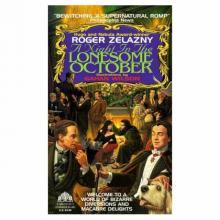 A Night in the Lonesome October
A Night in the Lonesome October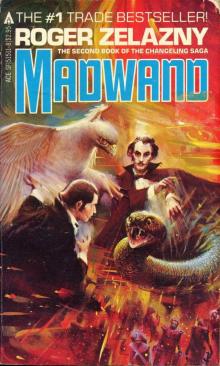 Madwand
Madwand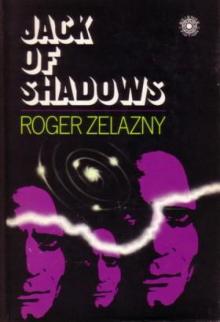 Jack Of Shadows
Jack Of Shadows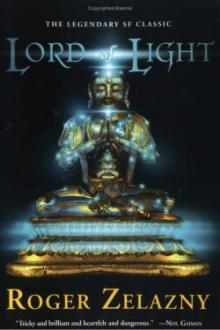 Lord of Light
Lord of Light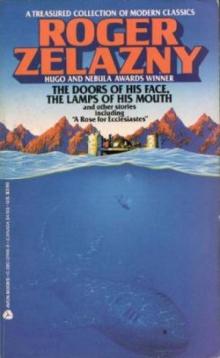 The Doors of His Face, The Lamps of His Mouth and Other Stories
The Doors of His Face, The Lamps of His Mouth and Other Stories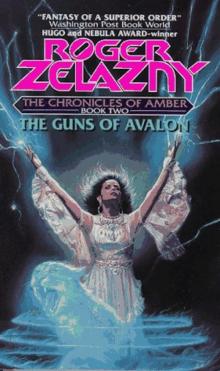 Guns Of Avalon tcoa-2
Guns Of Avalon tcoa-2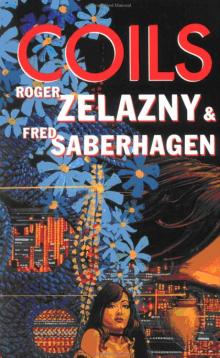 Coils
Coils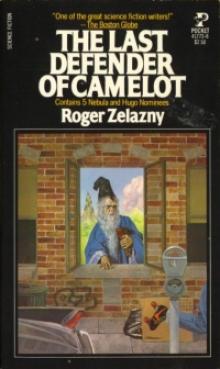 The Last Defender Of Camelot
The Last Defender Of Camelot Creatures of Light and Darkness
Creatures of Light and Darkness This Immortal
This Immortal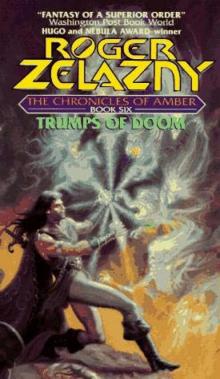 Trumps of doom tcoa-6
Trumps of doom tcoa-6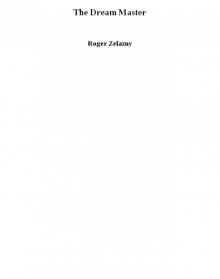 The Dream Master
The Dream Master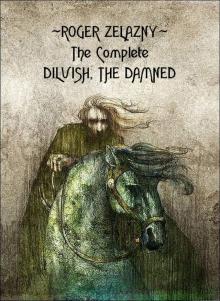 The Complete Dilvish, The Damned
The Complete Dilvish, The Damned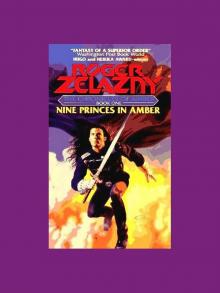 Nine Princes in Amber
Nine Princes in Amber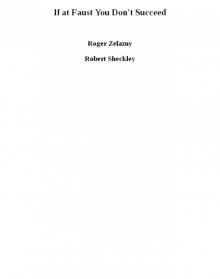 If at Faust You Don't Succeed
If at Faust You Don't Succeed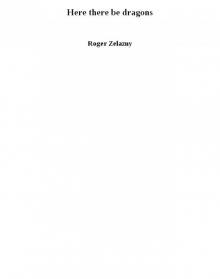 Here there be dragons
Here there be dragons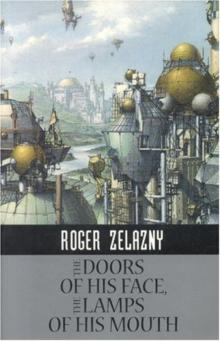 The Doors Of His Face, The Lamps Of His Mouth
The Doors Of His Face, The Lamps Of His Mouth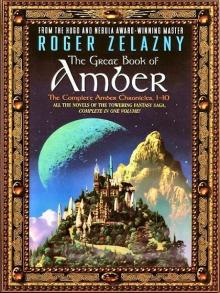 The Great Book of Amber - Chronicles 1-10
The Great Book of Amber - Chronicles 1-10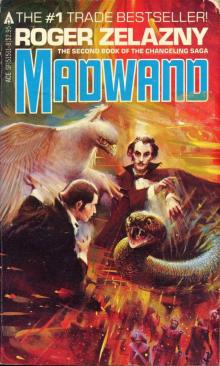 Madwand (Illustrated)
Madwand (Illustrated)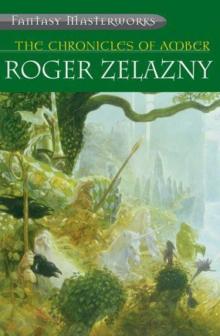 The Chronicles of Amber
The Chronicles of Amber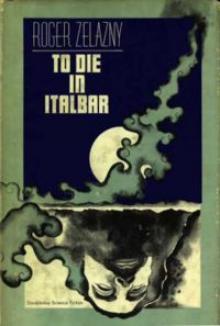 To Die In Italbar
To Die In Italbar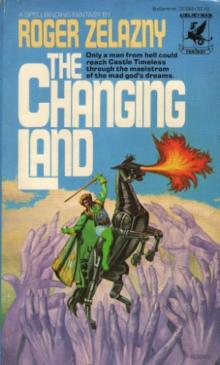 The Changing Land
The Changing Land The Furies
The Furies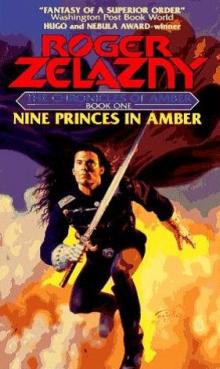 Nine Princes In Amber tcoa-1
Nine Princes In Amber tcoa-1 Last Of The Wild Ones
Last Of The Wild Ones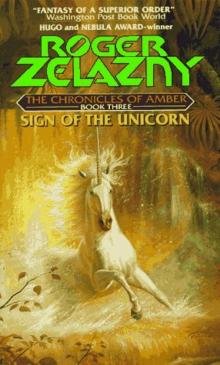 Sign of the Unicorn tcoa-3
Sign of the Unicorn tcoa-3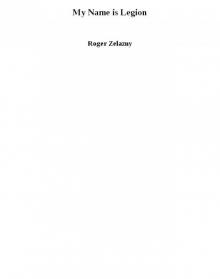 My Name is Legion
My Name is Legion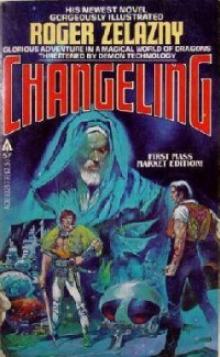 Wizard World 1: Changeling
Wizard World 1: Changeling Changeling
Changeling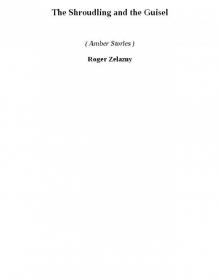 The Shroudling and the Guisel (amber stories)
The Shroudling and the Guisel (amber stories)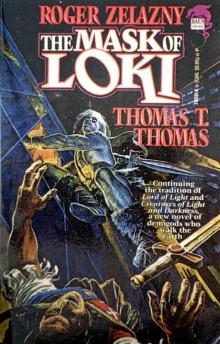 The Mask of Loki
The Mask of Loki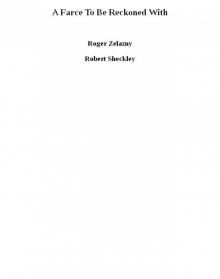 A Farce To Be Reckoned With
A Farce To Be Reckoned With Roadmarks
Roadmarks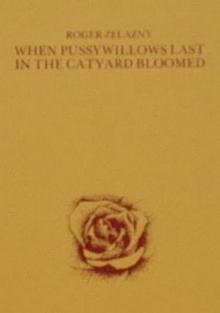 When Pussywillows Last in the Catyard Bloomed (rtf)
When Pussywillows Last in the Catyard Bloomed (rtf)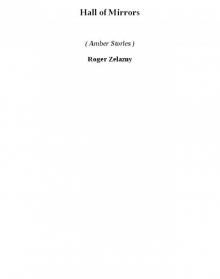 Hall of Mirrors (amber stories)
Hall of Mirrors (amber stories)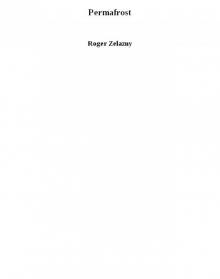 Permafrost
Permafrost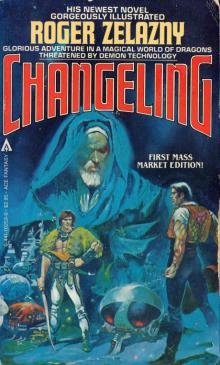 Changeling (Illustrated)
Changeling (Illustrated)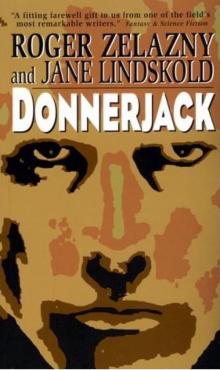 Donnerjack
Donnerjack Shadows & Reflections: A Roger Zelazny Tribute Anthology
Shadows & Reflections: A Roger Zelazny Tribute Anthology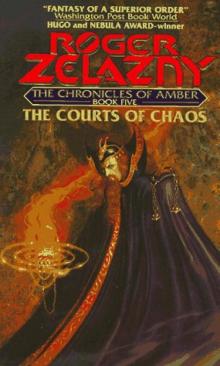 The Courts Of Chaos tcoa-5
The Courts Of Chaos tcoa-5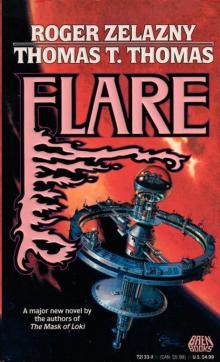 Flare
Flare Doorsways in the Sand
Doorsways in the Sand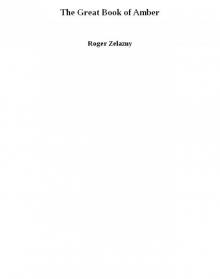 The Great Book of Amber
The Great Book of Amber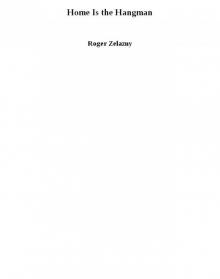 Home Is the Hangman
Home Is the Hangman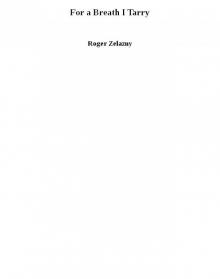 For a Breath I Tarry
For a Breath I Tarry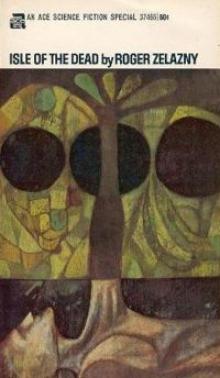 Isle Of The Dead
Isle Of The Dead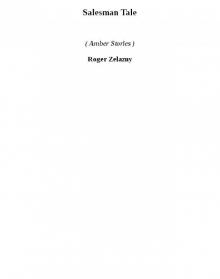 Salesman Tale (amber stories)
Salesman Tale (amber stories)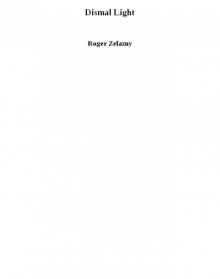 Dismal Light
Dismal Light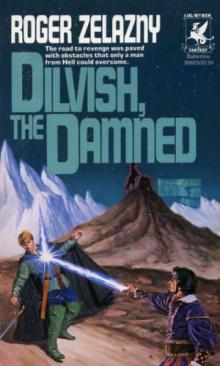 Dilvish, The Damned
Dilvish, The Damned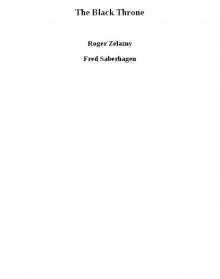 The Black Throne
The Black Throne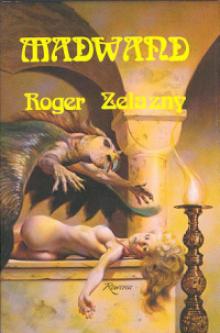 Wizard World 2: Madwand
Wizard World 2: Madwand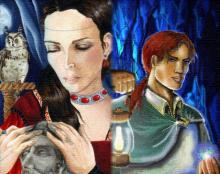 The Salesman's Tale
The Salesman's Tale